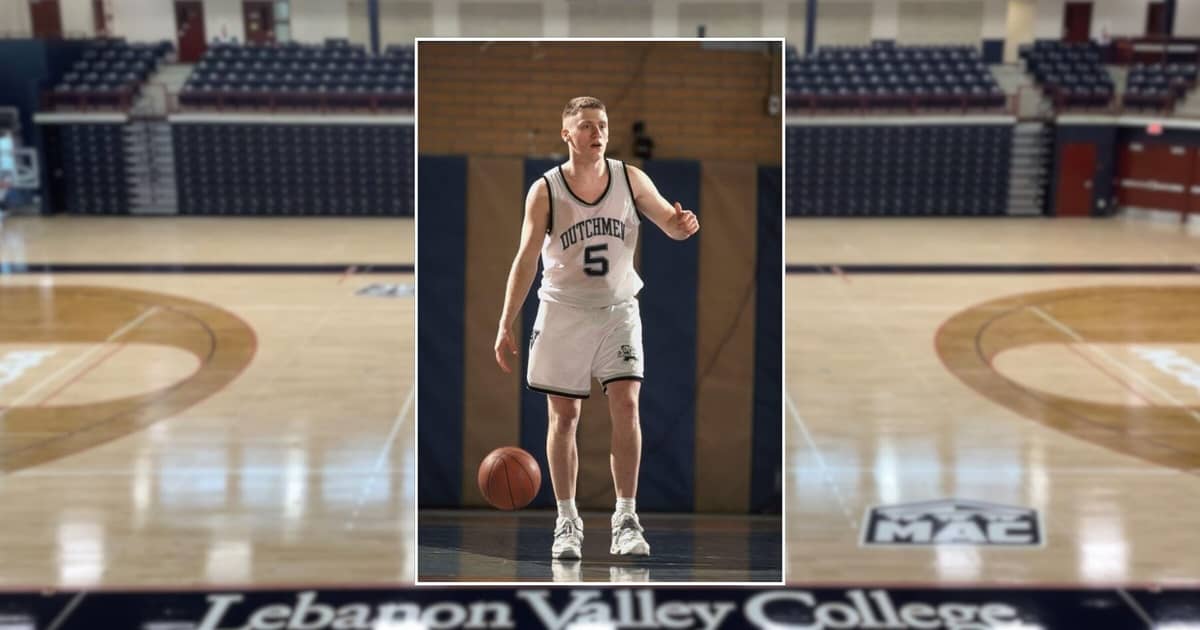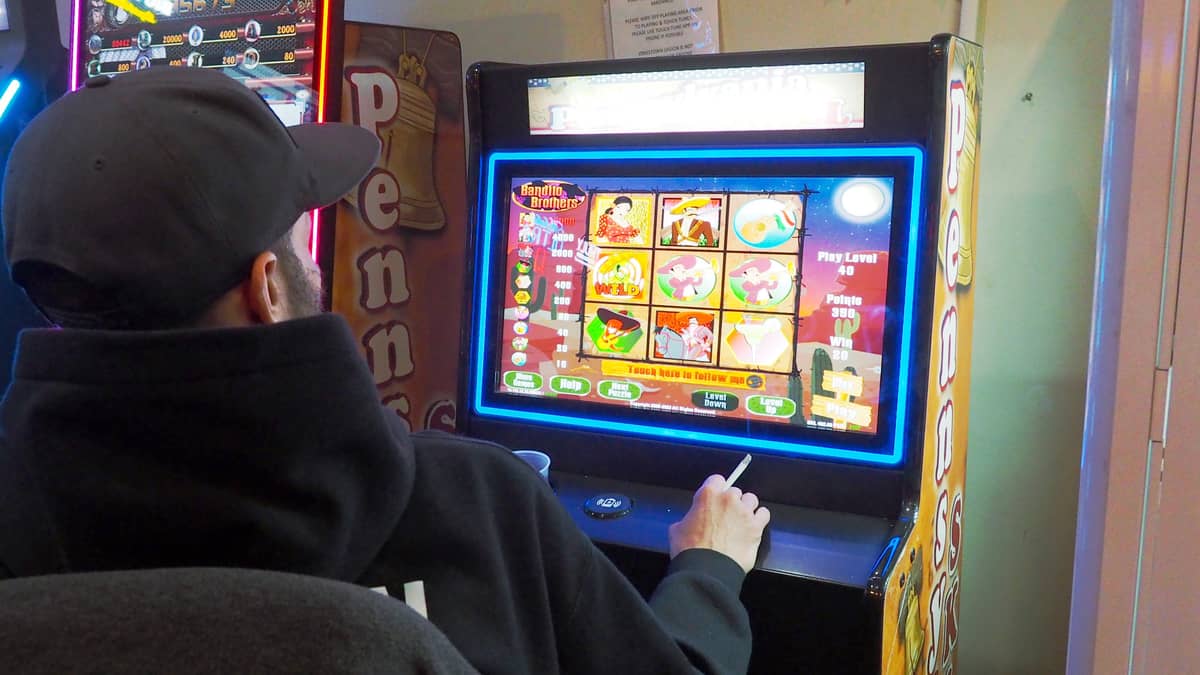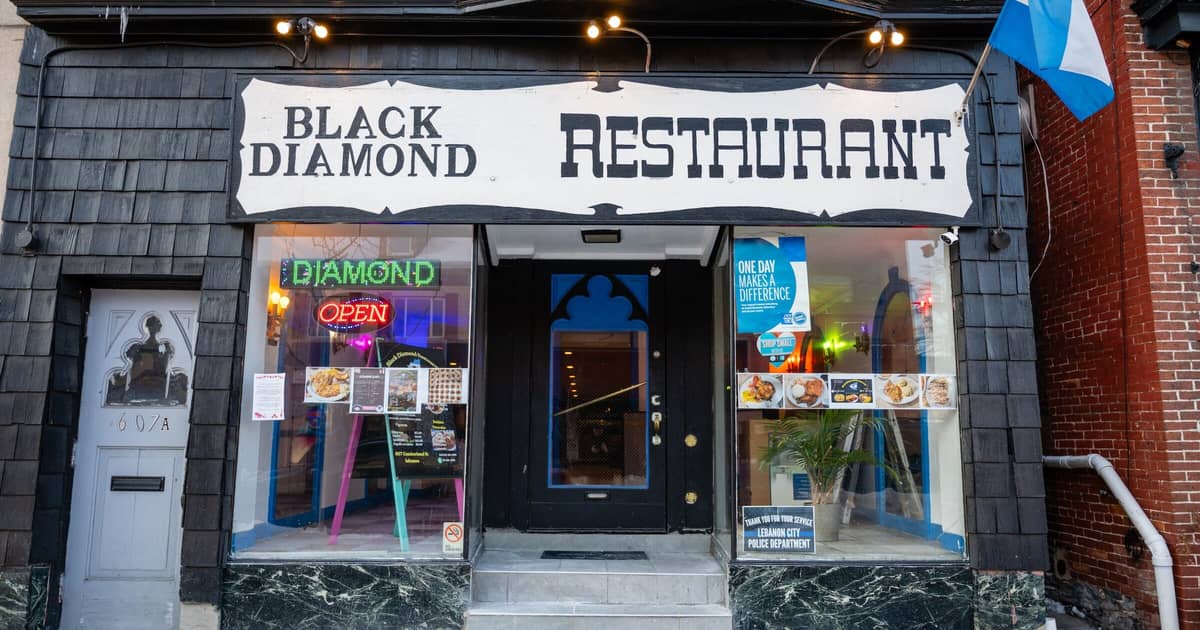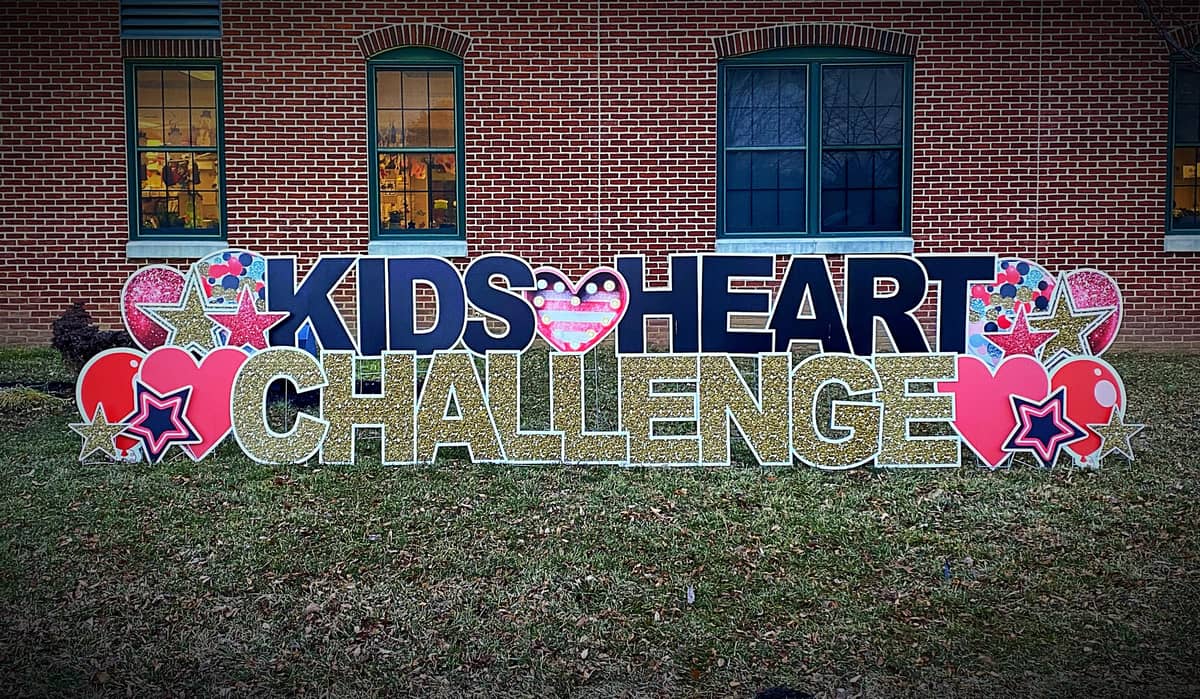The meeting took place at a Burger King in Pottsville, in the summer of 1991. Pat Flannery, then approaching his third season as the head men’s basketball coach at Lebanon Valley College, was on one side of the formica table, Mike Rhoades, a highly coveted point-guard recruit, on the other.
Both were Coal Region guys; Flannery is from Pottsville, while Rhoades hails from Mahanoy City, just 13 miles away. They had known each other for the better part of a decade, since Rhoades showed up at age 8 at a summer camp in Pottsville run by Flannery, then a Drexel assistant.
Almost immediately, Rhoades began tussling with Mark McCabe, Flannery’s nephew. And they kept at it, to the point where it was obvious one of them would have to go. Tough call, but Flannery finally decided to throw his own nephew out.
“My sister (Rene) didn’t talk to me,” Flannery recalled recently, “but I did the right thing because I don’t think I would have been able to recruit (Rhoades) 10 years later.”
And Flannery recruited Rhoades hard, no question. For good reason, too; as a senior, Rhoades was named first-team all-state while leading his high school, Mahanoy Area, to the state semifinals. Recruiters of every stripe were on him, but his high school graduation came and went without a college decision, highly unusual for a top-flight recruit.
It first appeared Rhoades was going to go to Bloomsburg, but that fell through. Then, it looked as though he was going to land at Alvernia, but that school’s coach, Rick Binder, was fired.
Even so, Flannery was pessimistic.
“I thought we were done,” he recalled.
Then, Rhoades called him, while Flannery was working at the esteemed Five-Star Camp in Western Pennsylvania. Could they sit down and talk? Flannery couldn’t drive to Pottsville fast enough, couldn’t wait to reach that Burger King.
“Coach, I’m tired of this,” Rhoades told him. “I always have this thing: ‘Run to wherever you’re going, and you’ll be successful, whatever you do.’ … Coach, I want to run to Lebanon Valley.”
Run to wherever you’re going – Rhoades had taken that advice to heart from the moment his dad, Jim, passed it along years earlier. The meaning was clear: Jump in with both feet. Put yourself out there. Embrace the task at hand.
So, it is that the 52-year-old Rhoades has fairly sprinted through life, like a walk-on doing suicides. In so doing he has honored the memory of his dad, a state senator who died in a car accident in 2008, while also creating memories of his own.
He won a national championship with Flannery at LVC in 1993-94. He became a Randolph-Macon assistant after graduation, then the head coach. He joined Shaka Smart’s staff at Virginia Commonwealth, and went to a Final Four. He did as well as anybody could as Rice’s head coach. And he went back to VCU, this time as the head man, and made three NCAA appearances.
And in the fall of 2023, he landed the head-coaching job at Penn State. The money’s great – nearly $26 million over seven years – but Rhoades is bound and determined not to let that change who he is. Nearly three decades into his coaching career, he is still going full speed, still goading everyone to keep up.
The question is, where can the Nittany Lions run? And how fast can they get there? This is a program that, over the years, has epitomized mediocrity, that has been an afterthought on a campus where football and wrestling reign supreme. For every NCAA tournament appearance – there have only been four since PSU joined the Big Ten in 1992 – there have been countless seasons of also-ranism.
Rhoades is the seventh coach to head the Lions since they joined the conference, including one interim. In that span, they have enjoyed just seven 20-win seasons and finished 10th or lower in the conference 18 times. Their best finish was second, under Jerry Dunn in 1995-96.
Yes, there have been six NIT appearances, with two titles, but c’mon – the NIT stopped being relevant shortly after Dr. Naismith cut the bottom out of the peach basket.
Against that backdrop, PSU’s 16-17 finish in Rhoades’ first season is hardly surprising. But as always, he’s rushing ahead. As always, he’s looking to run somewhere way, way down the road, to places PSU has seldom visited and never stayed.
“We want to do something here that’s never been done before,” he said. “Why not? Let’s put ourselves out there. You’ve got to talk about it, and then you’ve got to sharpen your sword.”
The key to PSU becoming a consistent winner, he said, is top-to-bottom change – a change in culture, change in commitment, even a change in scheduling, as evidenced by the fact that the Lions will face Lafayette in an Oct. 25 exhibition at LVC. But his predecessors have said much the same thing, only to face-plant.
The difference now is that he has come aboard at a time when the entire college sports landscape is undergoing major upheaval, when things like the transfer portal and NIL money loom large. When change is not only possible but expected.
Rhoades was, in fact, heavily dependent on transfers his first season, with the best of those being point guard Ace Baldwin Jr., who followed his coach from VCU and is back this year. This season four more newcomers have arrived in Happy Valley – wing Eli Rice (late of Nebraska), guard Freddie Dilione V (Tennessee), forward Kachi Nzeh (Xavier), and forward Yanic Konan Niederhauser (Northern Illinois), a native of Switzerland.
Certainly, Rhoades said, he would prefer to grow and nurture players throughout their entire careers – it is, he said, “one of (his) favorite parts of coaching” – but that’s simply not realistic anymore. And the truth is, Rhoades and his staff knew Rice, Dilione, and Nzeh from the recruiting process. It was a matter of renewing acquaintances, not starting fresh.
Speaking of which, Rhoades brought on a familiar face last fall to oversee his program’s NIL efforts – Flannery, whose formal title is general manager of an organization known as “More to Give.”
Jason Say, one of Rhoades’ teammates on LVC’s ‘93-94 Division III title team, was reminded recently about Rhoades now being Flannery’s boss.
“Isn’t that scary?” Say said with a laugh.
Flannery and Rhoades are in many ways the same guy – grinders who, to borrow a word Rhoades likes to use, have a bit of an edge about them. Both admit to butting heads when they were at LVC, but neither believes that was the worst thing. Indeed, Flannery said he took the same approach when he played point guard for Charlie Woollum at Bucknell.
“If you don’t push back and you don’t have that, then you’re probably a marshmallow,” Flannery said, “and you sure don’t want to be a marshmallow. I respected the pushback, and hopefully, Coach Woollum respected my pushback.”
The results are inarguable, but Rhoades said he had the smallest of misgivings when he first arrived in Annville. He particularly recalls meeting Say while standing in line for freshman orientation, outside the LVC chapel. Say, a wiry 6-6 forward from far-off Knox, Pennsylvania, was wearing Umbro shorts and soccer shoes, and sporting a mullet.
“And I’m going, ‘I’m going to play with this dude?’” Rhoades said.
The funny thing is, Say wasn’t all that impressed with Rhoades, either. He had heard his new point guard was a special player, but before him stood a pasty 5-10 guy. As Say put it, “He’s not a guy you look at, like, ‘Oh man, this guy looks like a stud.’”
Then, they stepped on the court and discovered how wrong they both were. It was immediately apparent to Say (and everyone else) that Rhoades was a guy around whom the program could be built, and immediately apparent to Rhoades that Say was no less a competitor than he was, that indeed all his new teammates were.

The trademark of those Rhoades-led teams was that they were as tough-minded as they were talented. They were always ready to get after it, no matter the opponent – even if it happened to be themselves.
“We beat the s– … hell out of each other,” Rhoades said, editing himself in mid-sentence. “In pickup, in practice, (we were) ready to fight each other, and then we all walked to the cafeteria after practice, laughing at each other. It was awesome. And we still laugh about it to this day. At the drop of a hat, we all would have fought, if we needed to, in a game – put the ball down and fight. But we had a bunch of tough kids that loved basketball and really ended up loving each other.”
Rhoades was the unquestioned leader, driving himself harder than everybody else. He would work out by himself early in the morning, late at night, whenever. Sometimes, he would find his way into Lynch Gym, and never mind that the doors might be locked. Sometimes, interestingly, he would go to the cemetery near campus in the wee hours to do his dribbling drills or run hills.
“I always had a hoodie on,” he said, “and my goal was to sweat through the hoodie.”
Say recalled that there were times when the entire team would be hanging out on a Saturday night, imbibing in the kinds of things college kids often imbibe in on weekends, when Rhoades would suddenly decide he had to go work out.
“And we’re all sitting on the couch like, ‘Dude, what is wrong with you?’” Say said.
“It’s the Schuylkill Valley blood in me,” Rhoades said, “that I could hang with everybody and then I’d go for a run, I’d go over to the gym and sneak in the gym and get a workout in. … I don’t know if I felt guilty; it’s just what I did.”
They reached the pinnacle in March 1994, on Final Four weekend in Buffalo, New York. Took down No. 1 Wittenberg 93-83 in overtime in a national semifinal, after trailing in regulation by 15 with 5:45 left and nine with 1:34 to play. The championship game against New York University was no less hotly contested, and would again spill into OT, on a stick-back by Say that might or might not have beaten the buzzer.
“It was way before the buzzer,” Say said recently. “I’ll tell you the exact same thing I told the New York Times: ‘Oh yeah, no doubt – it was way before.’ That’s been my answer ever since. That is my story, and I’m sticking to it.”
Of course, the Dutchmen fell behind by 4 to start the extra period. Of course, they reeled off the game’s last 11 points to win, 66-59.
The celebration was long and loud, but it quickly gave way to reality. Flannery moved on to Bucknell, where he enjoyed a long, successful run. Rhoades played his final season for a new coach, Brad McAlester, and as with most sequels, it didn’t measure up to the original. After the Dutchmen fell at home to Goucher in the first round of NCAAs, McAlester remembers Rhoades lingering in the locker room, reluctant to peel off his uniform, not wanting to admit to himself that his career was over.
Certainly, it lives on in memory. Last year, Say, CEO and owner of the Sportsmen Portal, a web development company, commemorated the championship season by producing a documentary called “The Dutchmen.” He said he did so for selfish reasons, that he wanted to honor his teammates. And among the many things he conveyed is the deep bond all of them had then, and the one they have still.
Time and again Say, who still lives in Knox, will head off to State College to check in on his former teammate. Other ex-Dutchmen do the same, secure in the knowledge that Rhoades is right where he should be, doing what he should be doing. And for his part, he feels like he’s settled in, his wife Jodie and younger son Chase having joined him in State College after remaining behind in Richmond last season. (The couple’s daughter, Porter, is a freshman lacrosse player at Penn State, while their older son, Logan, plays football and basketball at Susquehanna.)
But in another sense, Mike Rhoades never feels completely settled. He’s always striving, always seeking, always running somewhere. Now it’s just a matter of whether everyone else can keep up, of whether he can prod his program to do something other than run in place. Goodness knows others have tried to do the same in the past, only to discover just how tricky the footing is. Trickier, really, than that which might be found in a cemetery, in the dead of night.
Read More:
- Here’s how the LDN covered new PSU men’s basketball coach Mike Rhoades while he was a standout player at LVC
- Rhoades brings Penn State to alma mater Lebanon Valley for exhibition game
Editor’s note: This article was updated after publication to correct a reference to the Dutchmen’s best run.
Questions about this story? Suggestions for a future LebTown article? Reach our newsroom using this contact form and we’ll do our best to get back to you.

Keep local news strong.
Cancel anytime.
Monthly Subscription
🌟 Annual Subscription
- Still no paywall!
- Fewer ads
- Exclusive events and emails
- All monthly benefits
- Most popular option
- Make a bigger impact
Already a member? Log in here to hide these messages
An informed community is a stronger community. LebTown covers the local government meetings, breaking news, and community stories that shape Lebanon County’s future. Help us expand our coverage by becoming a monthly or annual member, or support our work with a one-time contribution. Cancel anytime.























